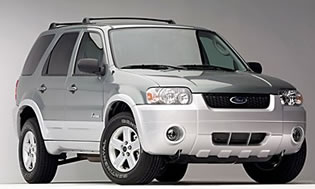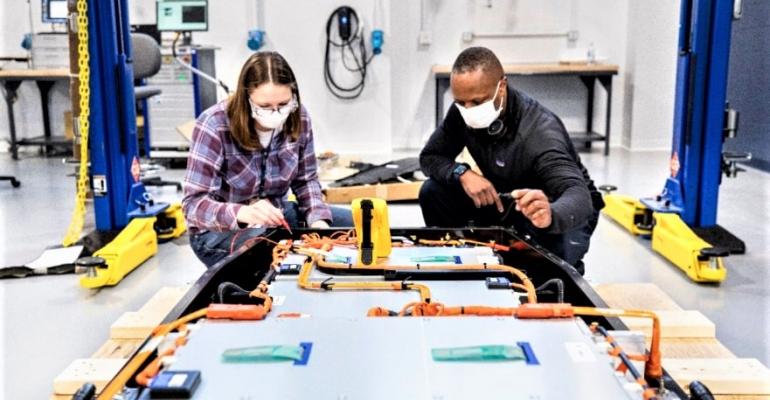Ford plans to spend $185 million to build a new technical center dedicated to the development, testing and manufacture of battery cells.
Ford Ion Park will be in Southeast Michigan on a site that will be selected soon and have a dedicated staff of 150. Due to open in late 2022, it will serve as a center for battery expertise for Ford operations worldwide and build on the automaker’s experience in building 1 million electrified vehicles since 2005, according to Hau Thai-Tang, Ford chief product platform and operations officer.
“We’re already scaling production of all-electric vehicles around the world as more customers experience and crave the fun-to-drive benefits of electric vehicles,” he notes. “Investing in more battery R&D ultimately will help us speed the process to deliver more, even better, lower cost EVs to customers over time.”
By centralizing cross-functional teams of experts in battery technology development, research, manufacturing, planning, purchasing, quality and finance, Ford can more quickly develop and manufacture battery cells and batteries, Thai-Tang (pictured below, left) says.
The Ion Park team also will explore better integration and innovation opportunities throughout the value chain – from mines to recycling – by working with all teams within Ford, including staff at the automaker’s Battery Benchmarking and Test Laboratory in Allen Park, MI, which was completed in 2020.
Researchers at the $100 million, 185,000 sq.-ft. (17,200-sq.-m) test center already have analyzed more than 150 types of battery cells.
The lab houses battery cell and pack test rooms, test benches and benchmarking facilities to support battery cell design validation, controls calibration, pack development and pilot battery pack projects with different chemistries. The lab team can replicate the performance of full-scale production batteries under extreme weather and customer use cases, speeding implementation in future vehicles.

“We are creating new tools and solutions we need for a carbon-free, affordable and better future,” Thai-Tang says. “We are modernizing Ford’s battery development and manufacturing capabilities so we can better control costs and production variables in-house and scale production around the world with speed and quality.”
Thai-Tang says Ford is moving toward vertically integrating battery production into the company’s operations. The current disruption of the semiconductor supply chain has put added focus on the automaker’s need to have tighter control over the supplies of battery cells in the future, he says.
However, Ford is not yet prepared to announce any plans for building a battery cell manufacturing plant.
The automaker is in discussions with the Biden Admin. on how best to build more secure supply chains for batteries and the critical materials used to make batteries.
Anand Sankaran, the company’s director-electrified systems engineering, will lead the Ford Ion Park team as its director. A 30-year veteran of Ford, Sankaran brings to the new position decades of battery and electrification expertise. He holds 32 U.S. patents in automotive power electronics and hybrid vehicle technologies.
Ford’s modern EV journey started with the Escape Hybrid (pictured below) in 2004, and it continues today – “all driven by the inspiration to deliver no-compromise vehicles for a better world,” Sankaran says.
“While some automakers have placed their bets, we are going to use this lab with the help of partners and suppliers to fine-tune our batteries to our vehicles and customer needs – exploring next-generation lithium-ion solutions, including solid-state batteries,” he says.
'04 Escape Hybrid was Ford's first modern electrified vehicle.





